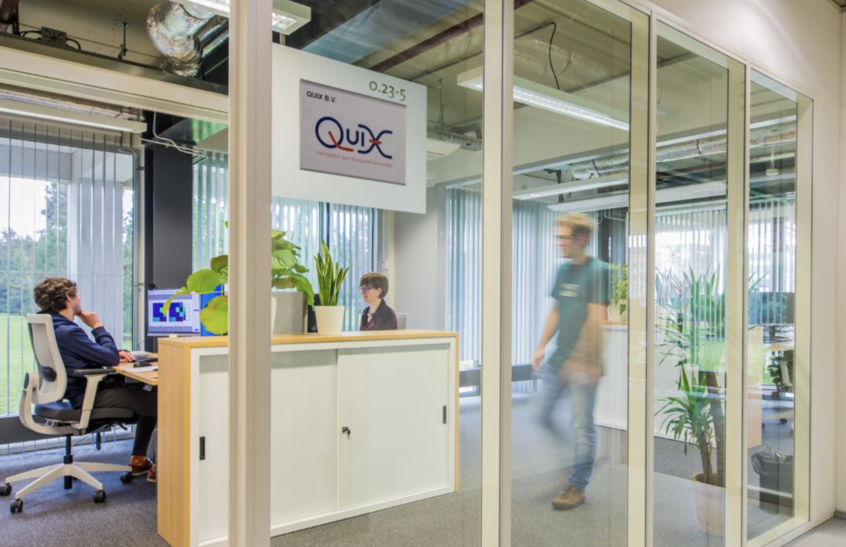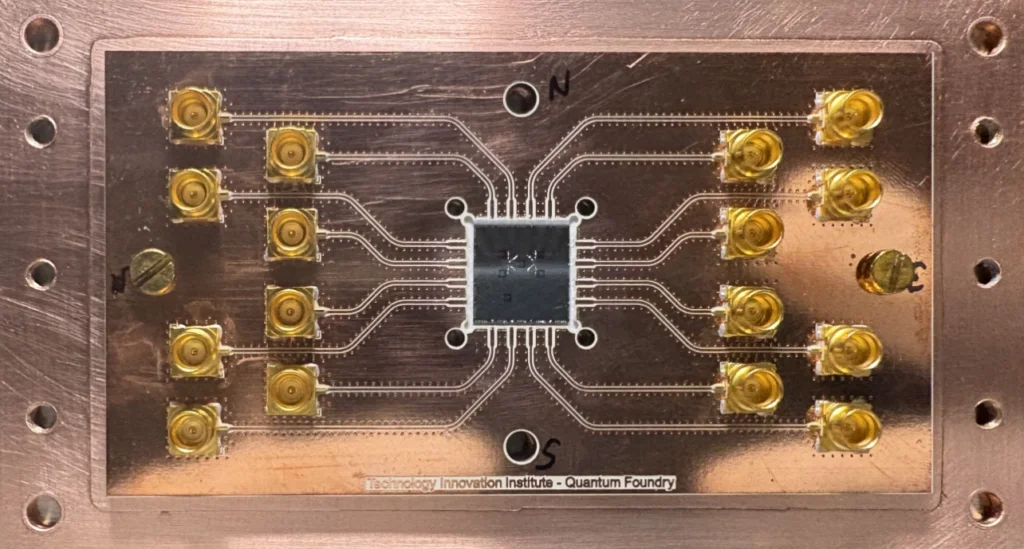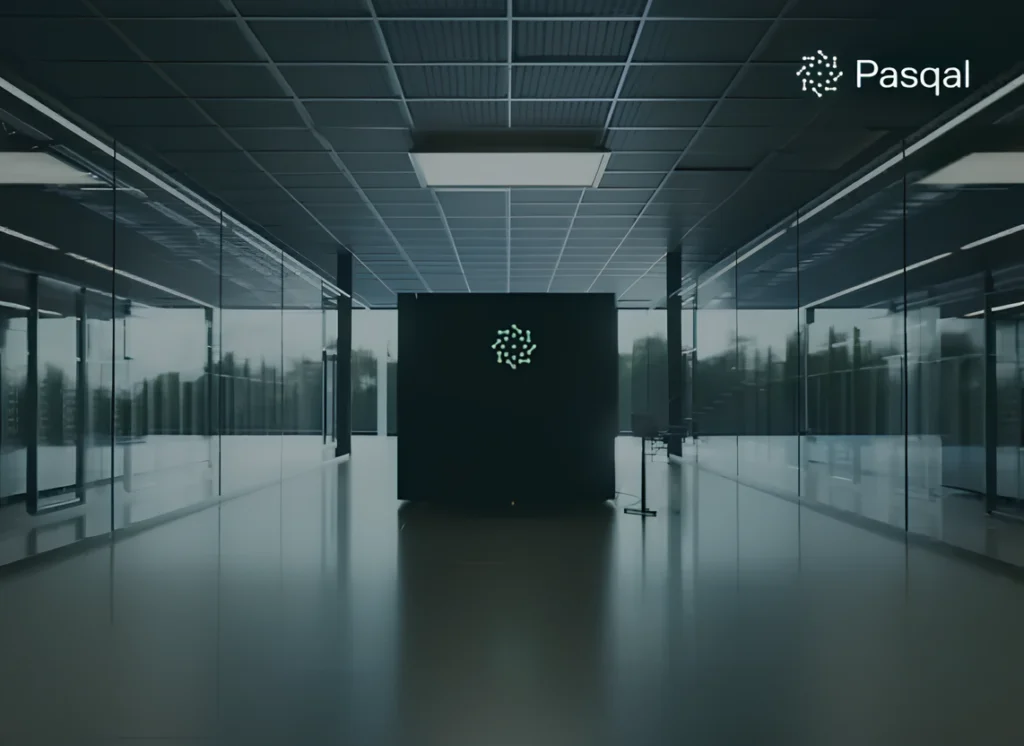Insider Brief
- QuiX Quantum’s €14 million contract will be used to create a photonic quantum computer prototype for the German Aerospace Center (DLR) as the company takes steps toward building a 64-qubit quantum computer.
- The device is based on photonics, integrating the existing technologies from their processors with sources, detectors and feedforward to create a modular photonic QC.
- The German Federal Ministry for Economic Affairs and ClimateAction (BMWK) has provided DLR with funding to develop German quantum computers and establish the associated economic environment. Industry, research institutions and start-ups will be involved in the initiative under the leadership of DLR.
- Image: QuiX
PRESS RELEASE — QuiX Quantum, will create a prototype Photonic Quantum Computer for the German Aerospace Center (DLR). This European company is the first ever to sell a Universal Quantum Computer based on photonics, worldwide. The ultimate end goal is for QuiX Quantum to deliver a 64-qubit Quantum Computer.
QuiX Quantum will deliver 8- and 64-qubit fully Universal Quantum Computers based on photonics, integrating the existing technologies from their processors with sources, detectors, and feedforward to create a modular Photonic Quantum Computer. This represents the first commercial sale of Universal Quantum Computers based on light.
The customized development for the DLR will be carried out in a joint four-year project in the framework of the DLR Quantum Computing Initiative.

“We merge competencies from the Netherlands andGermany in one location, at the innovation center of the DLR Quantum Computing Initiative in Ulm. QuiX Quantum has already proven the functionality of its integrated quantum photonics and is successfully supplying Quantum Photonic Processors to customers throughout Europe,” says Dr.-Ing. Stefan Hengesbach, CEO of QuiX Quantum, further explaining that “one of the things we expect from the cooperation with DLR is a systematic investigation and demonstration of the potential fields of application, especially in the numerous disciplines ofDLR.”
The German Federal Ministry for Economic Affairs and ClimateAction (BMWK) has provided DLR with funding to develop German quantum computers and establish the associated economic environment. Industry, research institutions, and start-ups will be involved in the initiative under the leadership of DLR.
The problems identified by the DLR include post-quantum cryptography, quantum machine learning, planning optimization for satellite operations, and simulation of chemical redox reactions for the development of battery systems. The addressed topics have an industrial application background as well.
Through its own research, DLR has a clear need for the future use of quantum computers in all its focal areas of aeronautics, space, energy, transport, security, and digitization. Photonics will enable the second generation of quantum technology, and QuiX Quantum is leading in photonics as the market leader in photonic quantum computing hardware.
QuiX Quantum has already developed a non-universal quantum computer with a current running Boson Sampler, which is a special purpose quantum computer. At the core is the QuiX Quantum Photonic Processor in the form of a reprogrammable interferometer. The commercialized 20-mode Photonic Processors by QuiX Quantum are low-loss, multimode, fully reconfigurable interferometers for quantum computing that operate at room temperature, vastly reducing the cost and size. The QuiX Quantum Photonic Processors are already the de facto standard at leading institutes for photonic quantum processing in the UK,France, Germany, and Hungary.
The contract awarded runs within the framework ofDLR’s Quantum Computing Initiative and is in line with the roadmap of QuiX Quantum to develop a Universal Quantum Computer.
QuiX Quantum have years of invaluable experience in quantum photonics that have led them to be entrusted with the DLR contract.
The start-up was founded in January 2019 in Enschede, the Netherlands. Since then, they have successfully commercialized market leading technology and recently raised and secured a funding worth €5.5million. Now, QuiX Quantum will be the first European company to further develop a Universal Quantum Computer based on photonics as a customer-specific development. The QuiX Quantum product portfolio is based on patented Photonic Integrated Circuits, PICs, which are proven to be low loss.
This patented innovation of the underlying technology of the world’s most powerful Quantum Photonic Processor offered by QuiX Quantum enables plug-and-play, integrated and reconfigurable hardware. Therefore, making them the most sophisticated and customizable commercialized PIC configurations available.
QuiX Quantum PICs drive the quantum revolution with near term NextGen solutions for finance, pharma, chemistry and data security.Optics and photonics are important enabling technologies that help us address global challenges related to poverty, inequality, climate change, environmental degradation, and more.
Kick-starting joint development of applications with the DLR, the German Aerospace Center, QuiX Quantum will have a dedicated space at the DLR Innovation Center in Ulm.
“With QuiX Quantum, we are integrating another company into our quantum computing initiative by commissioning it to develop the technology field, here specifically for photonic quantum computing. In our innovation center in Ulm, another player in the quantum computing ecosystem will thus advance this technology with us,” says Dr. Robert Axmann, head of the DLR Quantum Computing Initiative.















